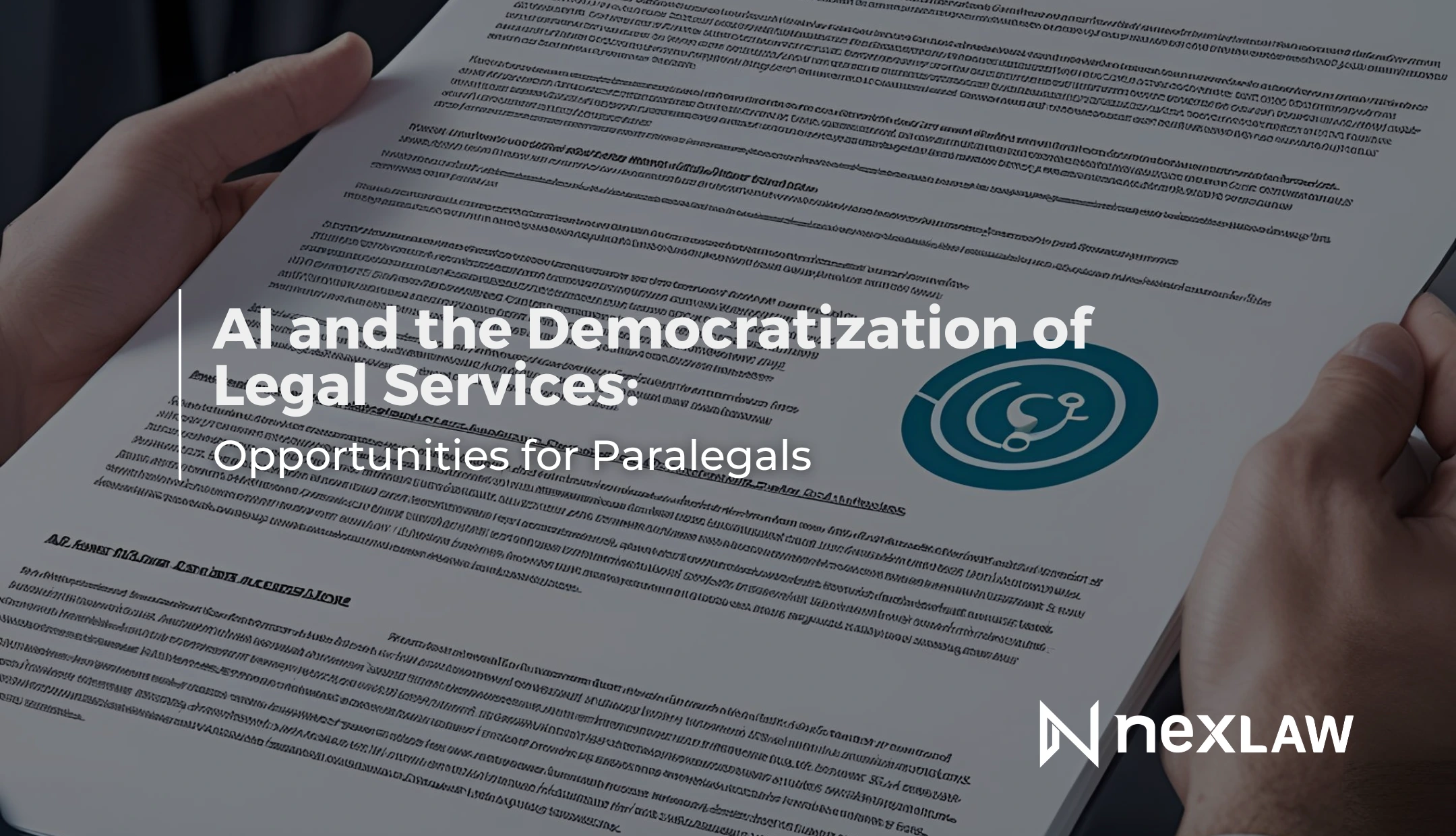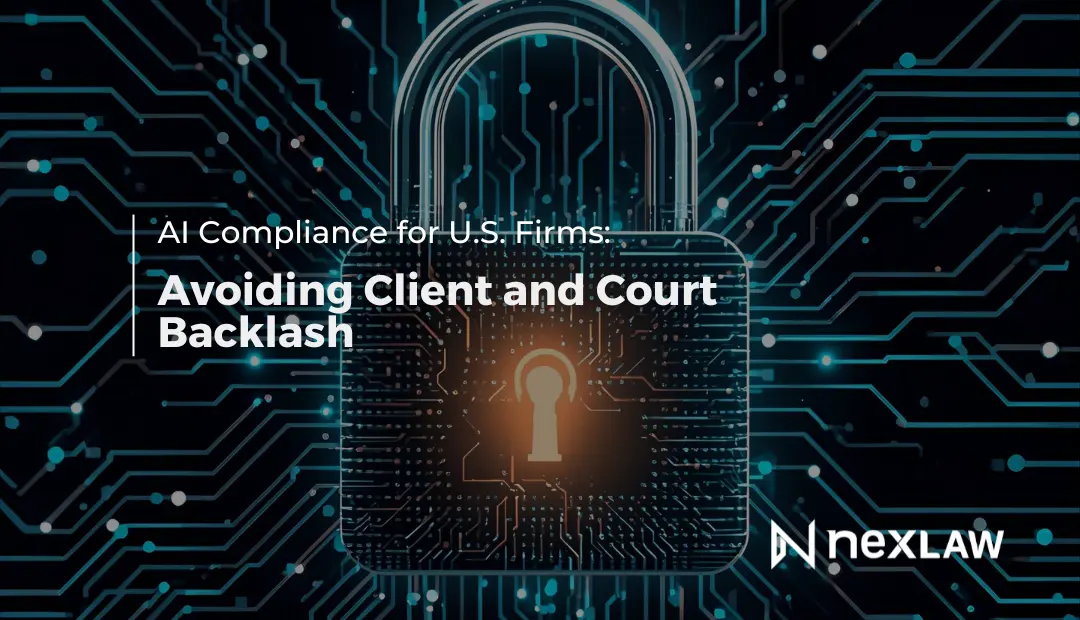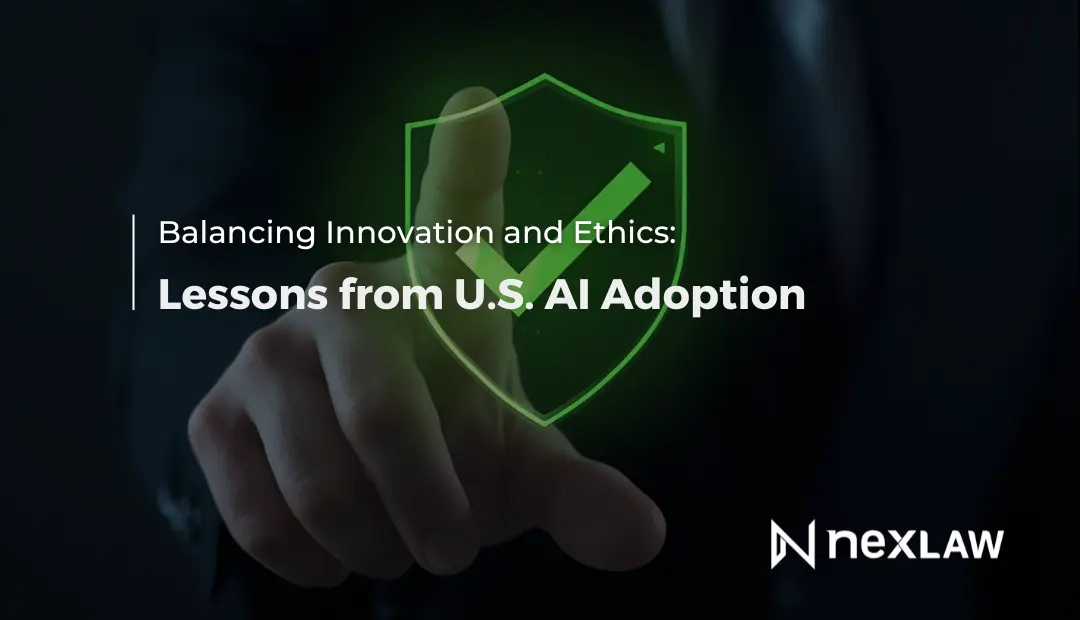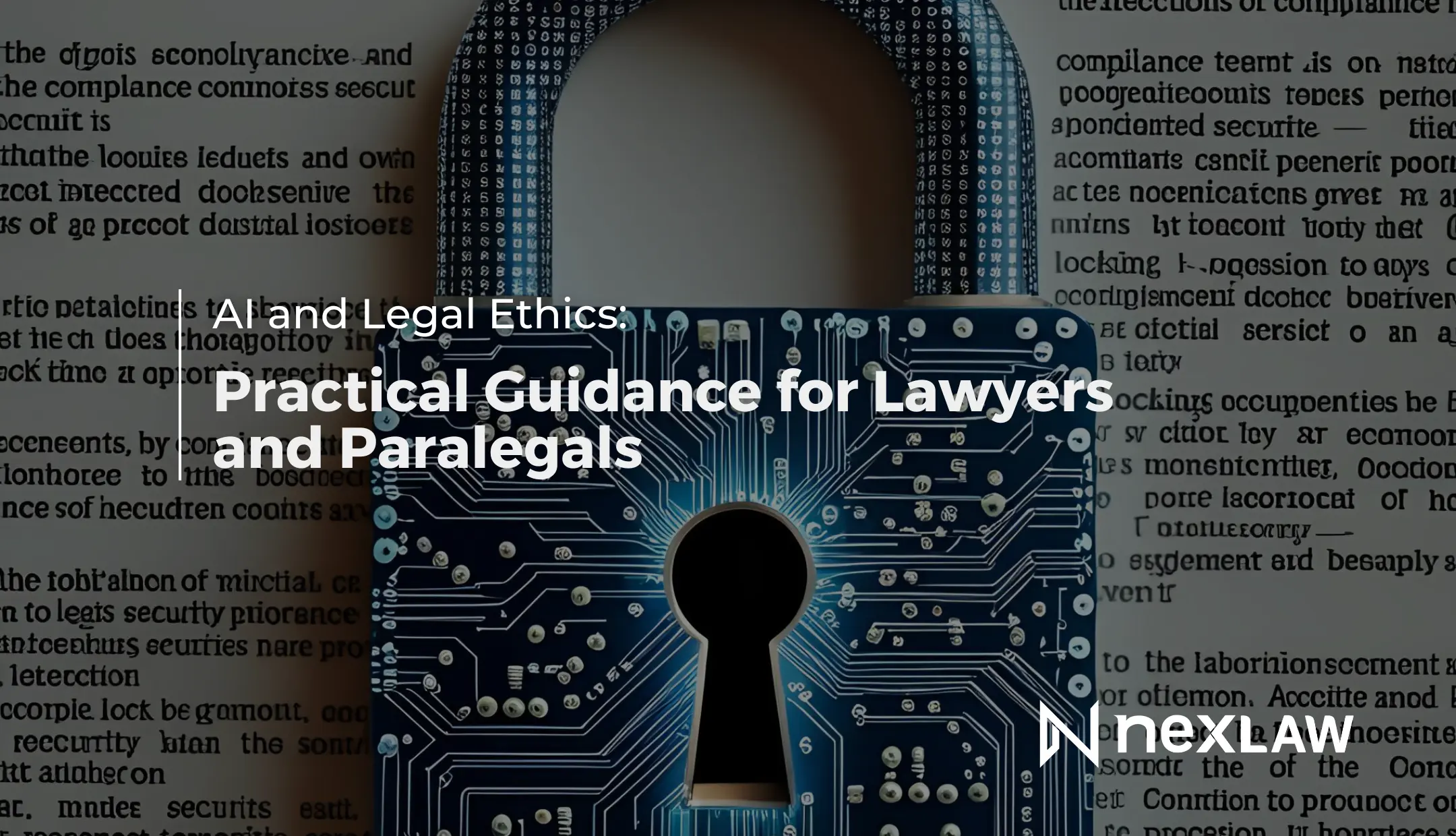AI and the Democratization of Legal Services: Opportunities for Paralegals
The legal industry is experiencing a transformative shift, driven by the integration of artificial intelligence (AI). Beyond improving operational efficiency, AI is opening new opportunities for paralegals and legal assistants to contribute more strategically within law firms. By automating repetitive tasks and streamlining workflows, AI is helping democratize legal services, making them more accessible to individuals who may otherwise face barriers to legal representation.
Unlock Legal Insights Instantly!
How AI is Transforming Paralegal Roles
Paralegals have traditionally been responsible for tasks such as document preparation, legal research, and client communication. AI now allows them to expand their responsibilities while automating routine work, freeing time for higher-value contributions.
Key areas where AI is reshaping paralegal work include:
Document Drafting and Review
AI-powered tools can generate standard legal documents, identify inconsistencies, and flag missing information. This reduces manual review time and improves accuracy, allowing paralegals to focus on complex analysis and quality control.
Legal Research
Advanced AI search tools enable paralegals to quickly identify relevant cases, statutes, and legal precedents. By streamlining research workflows, AI enhances both speed and precision in identifying key information for attorneys.
Case Management and Workflow Automation
AI systems can organize case files, track deadlines, and streamline internal workflows. Automating administrative tasks allows paralegals to dedicate more time to strategic and client-facing responsibilities, improving the overall efficiency of legal teams.
By integrating AI tools, law firms can increase productivity while enabling paralegals to provide more meaningful support to attorneys and clients alike.
Democratizing Legal Services
AI’s impact extends beyond operational efficiency, it is a catalyst for expanding access to justice. Smaller firms, solo practitioners, and legal aid organizations can leverage AI-powered tools to deliver high-quality, affordable legal services.
For example, AI-driven chatbots and document automation platforms can guide self-represented litigants (pro se clients) through legal procedures, assist with document preparation, and provide relevant legal information. These tools reduce barriers to entry, allowing more individuals to engage effectively with the legal system.
By empowering both legal teams and individuals, AI is contributing to a more equitable legal environment. Paralegals are at the forefront of this transformation, using technology to expand the reach and efficiency of legal services.
Enhancing Paralegal Skills with AI
While AI excels at automating repetitive tasks, human judgment remains essential. Paralegals must develop complementary skills to maximize the benefits of AI, including:
Data Literacy
Understanding AI-generated insights and interpreting legal analytics helps paralegals support informed decision-making.
Ethical Decision-Making
Paralegals must ensure that AI recommendations align with professional and ethical standards, particularly regarding client confidentiality and compliance with legal regulations.
Client Communication
AI can enhance client interactions, but it cannot replace personalized communication. Paralegals must integrate AI tools thoughtfully, using technology to support clearer and faster communication while maintaining a human touch.
Experts emphasize that AI should be embraced as a partner rather than a replacement. When integrated effectively, AI can reduce burnout, increase productivity, and elevate the strategic contributions of paralegals within legal teams.
AI in Case Management and Workflow Optimization
AI-powered platforms streamline case management for law firms, enhancing operational efficiency and team coordination. Key benefits include:
- Automated Case Summaries: Quickly producing concise summaries of case files for attorneys and clients.
- Document Drafting Support: Generating accurate, standardized legal documents with fewer errors.
- Task and Deadline Tracking: Organizing workflows to ensure timely completion of critical tasks.
By optimizing these processes, AI frees paralegals to focus on higher-level work, including client counseling support, legal strategy preparation, and compliance oversight. This efficiency not only improves internal workflows but also enhances client satisfaction through faster and more reliable service.
AI and Ethical Integration
Responsible AI integration is crucial for legal teams. Paralegals must:
- Maintain competence: Understand the capabilities and limitations of AI tools.
- Protect confidentiality: Ensure client data remains secure while using AI systems.
- Communicate transparently: Inform attorneys and clients when AI assists with legal work.
Following these principles ensures AI adoption is compliant with professional standards and enhances rather than undermines the quality of legal services.
Preparing Paralegals for the Future
As AI continues to evolve, the role of paralegals is also changing. Law schools and professional development programs are increasingly incorporating AI education, legal technology training, and data analytics into their curricula.
This training equips paralegals to use AI responsibly and effectively, enhancing their strategic contributions to law firms. By staying current with technology trends, paralegals can improve operational efficiency, support client outcomes, and play a more proactive role in legal service delivery.
The Future of AI in Paralegal Work
AI’s role in paralegal workflows is expected to expand further. Emerging applications include:
- Predictive analytics for case outcomes
- Advanced document automation and compliance checking
- AI-assisted knowledge management across law firms
Paralegals who adopt AI thoughtfully will be positioned to lead operational improvements, provide higher-value support to attorneys, and help law firms offer more accessible legal services.
The integration of AI into paralegal work is not just about efficiency, it is about creating a legal environment where teams can collaborate effectively, focus on strategic initiatives, and expand access to justice for more clients.
AI integration is transforming paralegal roles and the broader legal system by:
- Enhancing efficiency: Automating routine tasks frees paralegals for higher-value work.
- Expanding access to justice: AI tools support self-represented litigants and increase the reach of legal services.
- Evolving strategic roles: Paralegals can take on more meaningful, client-facing responsibilities.
- Ensuring ethical integration: Responsible AI use maintains professional standards and client confidentiality.
By combining AI with human expertise, law firms can empower paralegals, strengthen legal teams, and provide broader, more efficient, and more equitable legal services.
Take the Next Step with NexLaw
Lawyers who embrace AI today are shaping the legal profession of tomorrow. Whether you’re part of a litigation team, a solo attorney, or a paralegal eager to expand your role, NexLaw makes it possible.
NexLaw is designed to help paralegals and attorneys solo or from small and mid-size prepare cases more efficiently, with greater accuracy and strategic insight.
Book a Guided Demo — See how NexLaw fits seamlessly into your practice and transforms your workflows.
Start a Free 3-Day Trial — Explore NexLaw risk-free and experience firsthand how AI can enhance efficiency, accuracy, and client satisfaction.
GET 15% OFF for annual plans using promo code: ANNIV15MONTHLY or ANNIV15ANNUALY
*t&c applied | visit our website for more details
With NexLaw, the future of litigation is here - AI-powered, accurate, and accessible.










